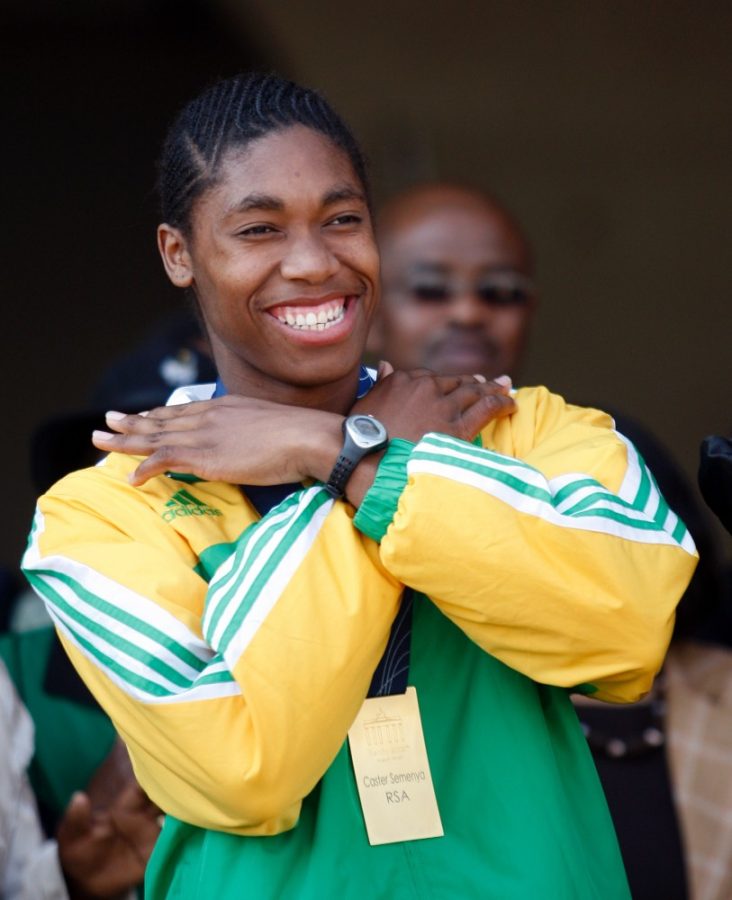Talking about whether or not Caster Semenya, the world champion South African runner whose gender is currently under speculation, is a woman is uncomfortable and awkward. Most people I’ve talked to haven’t read a lot of articles about her but have definitely seen the photos plastered all over the Web and in the news. In fact, that’s pretty much the first and last thing that comes up in conversations about Semenya.
Since the photos we’re all seeing seem engineered to be masculine and unflattering, a lot of us have been forced to confront our own little, no longer subconscious, slightly sexist observations. The most common manifestation is, “”I know, it sucks for her, but have you seen those pictures, she totally looks like a man … oh … “” Maybe slight coloring follows, and determined silence.
That’s not to say that it isn’t a good thing to talk about this stuff, but for us, the real question isn’t whether or not she’s a woman, but rather why we’re all so weirded out by whether she’s a woman or not. The most obvious answer is because she kicked the unholy scheisse out of everyone in Berlin, running-wise. It’s pretty obvious that had she gotten crushed and left in shame, no one would have thought twice about her sex.
Fortunately for me, Jessica McGary, a Ph.D. candidate in the sociology department, took the time to enlighten me on what, on a very general scale, feminist philosophers have to say about the issues at play here.
She said that, basically, Semenya’s position exemplifies an oft-seen trend in what may be most vigorously called sexual oppression. This trend is essentially a “”double bind,”” and was proposed by feminist theorist and philosopher Marilyn Frye. As summarized by McGary, Semenya’s position is a “”double bind”” insofar as “”in the experience of an individual within an oppressed group, that same individual loses even if she wins.”” If she wins, she’s not fitting into the mold of what her sex should be. If she loses she is part of a sex that is perpetually considered to be lesser, especially in sports, than the other.
When I asked McGary why educated college-culture assimilates like myself are so uncomfortable with uncertain gender, she cited feminist writer Judith Butler, saying that, “”When you walk around, you don’t actually see the primary sex characteristics. You don’t see X and Y-chromosomes, or Y and Y-chromosomes, etc. Gender characteristics as we understand them are a performance.”” She added that, “”It’s the idea that if you don’t look the part, you must not be doing gender right.””
For Semenya, this is ultimately about not looking the part. The parameters for this part were laid out succinctly at a concert I attended at the Rialto. This concert was headlined by a Tucson band who sang poppy ballads and up-tempo sing-alongs about girls, boys loving girls, girls being said boys’ worlds, and hearts being torn apart when said girls were no longer said worlds, etc.
One of the singers actually said, “”I don’t know, I guess she was speaking girl language and I was speaking boy language.”” “”Boy language”” and “”girl language”” were partly distinguishable by lyrical references to guys in tennis shoes and girls in tutus.
For us, these kinds of distinctions are so common as to be a comfortable truth, when in actuality they, like the ways people act out a certain sexuality, are about performance art.
When we get back to sports it gets tricky too, because the genders are distinguished purposefully to ensure balanced competition based on physical differences in gender. The trouble is, this means that there’s some set of standards for what each gender is capable of at a certain event, like running.
So on the one hand, what’s being said here is that Caster did better at an event than a woman should be able to do — which is depressing. On the other hand, this could be about how she doesn’t look quite as pretty on the block next to Janeth Busienei and Jennifer Meadows, in which case her detractors ought to take a good look in the mirror to make sure no one gets confused about their own gender.
— James Carpenter is a senior in English and Linguistics. He can be reached at letters@wildcat.arizona.edu









